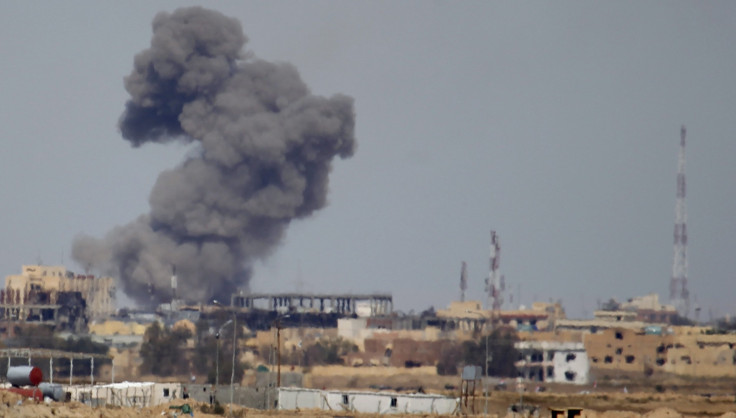Amid Anti-ISIS Strikes, Pentagon's $5M Compensation Fund Set Aside For Families Of Iraqi Civilians Killed From Raids Against Islamic State

The Pentagon has set aside $5 million in the 2016 defense budget that will, in part, be spent on compensating the families of civilians killed in U.S. and coalition bombing raids against the Islamic State militant group, also known as ISIS. The payment system represents the first time the U.S. has publicly acknowledged killing or wounding Iraqis since the bombing campaign against ISIS began in the summer of 2014.
“The U.S. is taking a positive step by acknowledging civilian harm and offering monetary payments to those suffering losses,” Sahr Muhammedally, a senior program manager at the Center for Civilians in Conflict told the Daily Beast Sunday. “While payments can never fully compensate for the loss of a loved one, they show recognition of the harm and can help with immediate expenses. The Iraqi government should enact a similar program to assist its citizens.”
The new $607 billion defense bill, which passed Thursday, is using funds for Iraq that come from a program actually intended for Afghanistan, called the Commanders’ Emergency Response Program, or CERP. The CERP ordinarily allows payments of up to $2,500 for loss of life, property or injury but can be increased if authorized by top brass, according to a May 2015 investigation by ProPublica.
For instance, the Department of Defense is to use the CERP fund to pay the families of the civilians killed and injured by an airstrike on a Doctors Without Borders hospital in Kunduz, Afghanistan. It is not yet known how much the Pentagon will pay out.
While CERP is not an expensive program when compared with the billions spent on defense acquisition, it is unpopular on Capitol Hill, as many past projects turned out to be large initiatives where costs spiraled out of control or were lost to fraud and corruption, according to the Daily Beast report.
However, the new fund will only cover incidents in Iraq -- and not Syria -- because of the dangers involved in investigating claims made by affected civilians on the ground.
As of Nov. 3, the U.S. has conducted 3,586 airstrikes in Iraq and 2,578 in Syria.
© Copyright IBTimes 2025. All rights reserved.






















